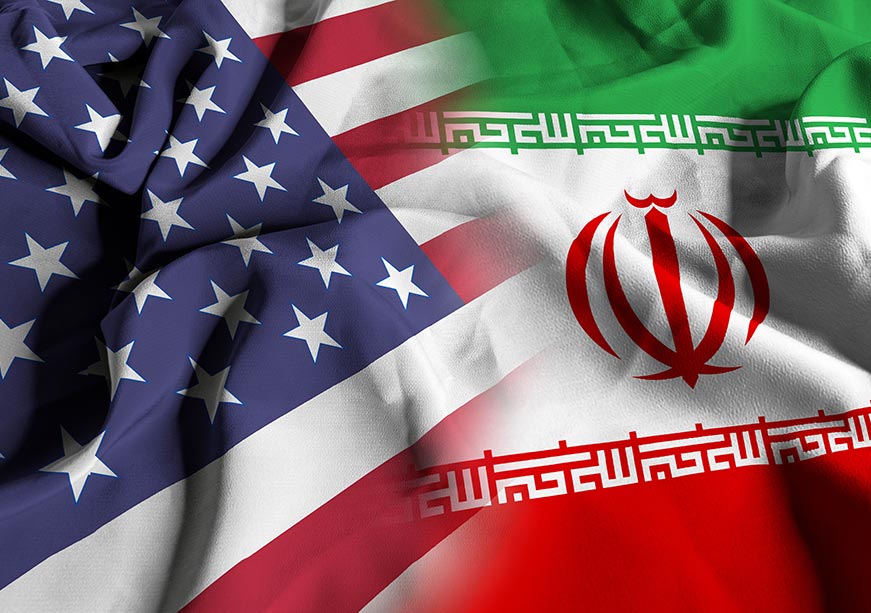
This article is part of GP-ORF series — From Alpha Century to Viral World: The Raisina Young Fellows Speak.
The term liberalism means many things to many people and its understanding is contingent on time and context. Liberalism can thus be termed an “essentially contested concept,” the meaning of which shifts and turns depending on individual persuasion<1>. When coupled with another “essentially contested concept” — democracy — we find ourselves in a semantic chaos, with few straws to clutch. Indeed, the coupling of liberalism and democracy has far-reaching implications not just on how political institutions are designed, but also on interpersonal relations, authority patterns, work ethics, and the freedom of action and decision. Liberalism predetermines our behaviour in the family and society, and also determines the behaviour of states within the international system.
The coupling of liberalism and democracy has far-reaching implications not just on how political institutions are designed, but also on interpersonal relations, authority patterns, work ethics, and the freedom of action and decision.
If we hardly agree on the meaning of liberal democracy, how can society be ordered along its lines? The concepts of liberalism and liberal democracy have become too flexible and have been stretched to justify even contradictory policy choices that societies have simply become confused about. The public discourse reflects this confusion; the current version of political “liberalism” is discarded by alleged “conservatives,” whose sociopolitical agenda is nonetheless formed by the core tenets of classical liberalism — as when former Czech President Vaclav Klaus, a self-proclaimed “liberal” in the 1990s and currently a “conservative,” calls for the decoupling of liberalism and democracy to save “Western civilisation”<2>. Perhaps this lack of structure in the very sociopolitical ideology that undergirds systems in the transatlantic region<3> is a testament to what Zygmunt Bauman labelled “liquid times” — an era lacking firm structures, which leads to fluid institutions and identities<4>. While some may view this “liquidity” as an opportunity to reformulate and reinvent humanity, others become lost within the lack of structure and anticipate social anomie and atrophy.
In times like these, it is convenient to remind ourselves of the basics — to probe the evolution of the coupling of liberalism and democracy and clarify the function of pairing the two concepts. Only then will we be able to understand the current friction points and the calls of some political representatives and pundits for the decoupling of the two, even their turn toward “illiberalism.”
In times like these, it is convenient to remind ourselves of the basics — to probe the evolution of the coupling of liberalism and democracy and clarify the function of pairing the two concepts.
Why societies developed ‘liberalism’
Ancient societies maintained two key characteristics — one, they were often strictly hierarchical, with very little opportunities for vertical social mobility; and two, they were communitarian/collectivist to the point that individual will barely existed, as it was subsumed and predetermined by the will of the community<5>. The individual was thus tied to a particular social stratum within the set hierarchy and his or her life choices were contingent to the needs and wishes of the community. Of course, such structures were determined by survivalist instincts as the more tightly knit and cooperative communities increased their chances of survival with regards to material subsistence and coping with external threats.
The hierarchical communitarian life, which was functional at first, eventually became a tool of repression. It constrained the individual through various forms of enslavement and serfdom and defined what is “the public good.” The arbitrary use of power by elites to coerce individuals into a system they designed and naturally sought to maintain lead to rebellions. To rid themselves of this oppression, society had to “invent the individual.” In Europe, it was mainly an impulse from Christianity — which acknowledged the physical side of the human body that was bound to Earth and the spiritual side that was emancipated from earthly confines — that helped form the initial prerogatives of human individuality, hence leading to ideas of equality of individuals<6>.
The arbitrary use of power by elites to coerce individuals into a system they designed and naturally sought to maintain lead to rebellions.
The “inventing of the individual” was a lengthy process as it necessitated the dissipation of old structural hierarchies, which the upper echelons vehemently resisted. These revolutionary ideas of individual emancipation culminated in John Locke’s thinking, who is often viewed as the “father” of liberalism<7>. Locke was basically a dissident in post-civil war Britain and though his vision of the role of government seems conservative today, it was radical in the seventeenth century. Locke’s “classical liberalism” urged that the government (the state) existed only to protect the “life, liberty and estate” of individuals and that if it overstepped or failed in its role, subjects had the right to rebel and replace rulers<8>. Inspiring thinkers of the American and French Revolutions and the Enlightenment, Locke’s idea led to the emergence of the doctrine of “natural rights” of individuals — the notion that each individual is endowed with the prerogative to own things, to be free and to rebel against authority. Though in Locke’s world, slaves were still considered an individual’s “estate” and thus protected by the right to own property, his visions sowed the seeds of our contemporary political systems.
In a liberal society, the individual maintains a set of “natural rights,” which are primarily political and civil, and these protect him or her from the arbitrary use of power. Such rights give individuals tools to protect themselves not only from state power infringing upon their liberty, but also to guard themselves from majoritarian society. The raison d’etat is the protection of an individual’s rights, so if most of society decides to indiscriminately strip an individual of his or her property, life or liberty, the state shall maintain the means to stop such impulses. Liberalism thus forms a “protective bubble” around every individual — it should protect the rich from the poor, who might want to accrue their wealth, but it should also guard the poor from the rich, who might want to displace them due to aesthetic reasons; and both the rich and the poor should be equally guarded against the excessive power of the state.
The raison d’etat is the protection of an individual’s rights, so if most of society decides to indiscriminately strip an individual of his or her property, life or liberty, the state shall maintain the means to stop such impulses.
Liberalism thus placed the individual at the centre of all human activity and emancipated him or her from coercive hierarchies and communities prevalent in human history. The more extreme forms of liberalism suggested that individuals are sole proprietors of their bodies, carrying the responsibility for their decisions and as such owe nothing to society/community. They are atomistic beings making self-interested decisions on their own behalf and since every individual is unique, there can be no agreement on what is the public good. If there cannot be agreement on the public good, then there does not exist an authority that can legitimately impose the definition of the “good life” upon anyone. In this sense, the state needs to be neutral towards defining the public good<9>.
Simply put, the initial purpose of liberalism was to support the liberation of the oppressed individual. Moreover, it formed a perfect pair with democracy. Political thinkers from Plato to James Madison saw democracy as “ochlocracy” or mob rule. If everyone was given a political say, then society would devolve into anarchy or dictatorship as the masses would be easily swayed by demagogues. In a strictly procedural democracy, the power of the majority would trample any minority. However, when the components of “natural rights” and liberalism are conflated with democracy, then the power of any majority is put in check. So, while democracy without liberalism may turn into a “dictatorship” of the majority, liberalism without democracy can deviate into a “dictatorship” of propertied elites.
If there cannot be agreement on the public good, then there does not exist an authority that can legitimately impose the definition of the “good life” upon anyone.
Where liberalism and democracy stand today
Though all societies in the transatlantic region accept the notions of liberalism and its individualism, not all members of these societies are “individualists” but are to some extent “communitarians” or “collectivists.” Studies show that indeed the Western societies are composed of citizens harbouring some form of “collectivist cultures” that “interpret self as an extension of their in-group,” place “higher value on vertical relationships” and accept “many individual obligations to their ingroup” in return for “high levels of social support and resources”<10>. What British-Indian political scientist Bhikhu Parekh wrote in the early 1990s about the non-Western perception of liberal democracy is thus pertinent to segments of societies in the West itself:
“…the democratic part of liberal democracy, consisting of such things as free elections, free speech and the right to equality have proved far more attractive outside the West and is more universalisable than the liberal components …As (non-Western societies) understand it, liberalism breaks up the community, undermines the shared body of ideas and values, places the isolated individual above the community (and) encourages the ethos and ethic of aggressive self-assertions…”<11>
It can thus be argued that liberalism has simply gone too far and too fast in deconstructing or fuzzing vertical relationships (hierarchies) and decoupling individuals from their communities<12>. With the loss of community and the atomisation of individual behaviour comes a loss of shared identity and thereby the uprooting of the individual. Hence the increased demand for nationalism and protectionism on one side of the political spectrum and an increased demand for politics that reaffirms and dignifies a variety of identities on the other. As liberalism set out to emancipate the individual from pre-existing oppressive structures, it continues in this undertaking till today. Women and ethnic, racial and sexual minorities are perceived to be constrained by hierarchies and communities beyond their control and thus deserving to be relieved (as demonstrated by the Black Lives Matter and MeToo Movements). The collectivist counterargument claims that the instrumental differentiation of identities only further decomposes the community<13>.
With the loss of community and the atomisation of individual behaviour comes a loss of shared identity and thereby the uprooting of the individual.
The said struggle of the individualist and collectivist cultures is manifested also in the economic sphere. Over the years, liberalism has adopted another dimension that operates in parallel with the advocacy for individual freedom. The liberal thought has come to support that if society works best when individuals are fully emancipated from structural constraints that hinder their potential, then the same should apply to markets. This economic dimension of liberalism wishes to shield markets from arbitrary state and majoritarian power, just like its social-liberal counterpart wishes to shield the individual. Both strands of liberalism, however, coexist in difficulty.
Social liberals claim that when markets are emancipated and unregulated, the individual loses a portion of his or her democratic freedoms — particularly the “natural” political and civil rights as corporate interests enmesh with political campaigns. While social liberals assert that only an active and redistributive state can ensure that no one is trapped within pre-existing structures and everyone can fully realise their potential, economic liberals counter that an activist state inherently limits the individual freedoms that form the core of liberalism (by limiting, for example, economic freedom by paying excessive taxes and redistributing them to others). As is clear, both arguments are grounded in the classical liberal position, yet they are irreconcilable.
The constant skirmish between collectivist and individualist attitudes leads to confused calls for the separation of liberalism and democracy or for building “illiberal democracies.”
Most politicians, political parties and voters in the transatlantic region are liberals — they understand the world through the prism of liberalism — even though current public discourse adheres the liberal sticker to left-wing politics. Yet the liberals’ visions for society part along the collectivist/individualist continuum. Progressive (left wing) liberals are individualists when it comes to social issues, but collectivists in the economic sphere. Conservative (right wing) liberals are collectivist in social matters and individualist in economic issues. Unfortunately, liberalism does not provide a clear answer to bring the two sides together.
The constant skirmish between collectivist and individualist attitudes leads to confused calls for the separation of liberalism and democracy or for building “illiberal democracies.” Note how this is manifested in the proposition of Hungarian Prime Minister Viktor Orban:
“<…> the Hungarian nation is not simply a group of individuals but a community that must be organised, reinforced and in fact constructed. And so in this sense the new state that we are constructing in Hungary is an illiberal state, a non-liberal state. It does not reject the fundamental principles of liberalism such as freedom, and I could list a few more, but it does not make this ideology the central element of state organisation, but instead includes a different, special, national approach.”<14>
If the bounds of the sociopolitical ideology undergirding our systems have been extended to the point that the ideology has become unworkable, democracy must step in as the arbiter that helps to amalgamate and distil opposing positions. That is why the two are paired. The tension between progressive and conservative liberalism may become oppressive, defying the core tenets of liberalism. Only the respect and trust in the results of the democratic process can save liberalism from itself and preserve the long-fought-for individual freedoms. After all, the main virtue and bottom-line of liberal democracy is that it permits citizens to change their rulers peacefully<15>.
Endnotes
<1> Walter B. Gallie, “Essentially Contested Concepts,” in Proceedings of the Aristotelian Society (Oxford: Oxford University Press, 1955), pp. 167-198.
<2> “The Defence of Democracy against Liberal Democracy,” Vaclav Klaus Institute, June 23 2018.
<3> Given the author’s provenience, this essay speaks mostly to the experience of the United States and EU countries.
<4> Zygmunt Bauman, Liquid Times: Living in an Age of Uncertainty (Cambridge: Polity Press, 2007).
<5> Larry Siedentop, Inventing the Individual: The Origins of Western Liberalism (Cambridge, MA: Belknap Press, 2014).
<6> Siedentop, Inventing the Individual
<7> Nancy J. Hirschmann, Gender, Class, and Freedom in Modern Political Theory (Princeton: Princeton University Press, 2008), pp. 79.
<8> John Locke, Two Treatises of Government (England: Awnsham Churchill, 1689).
<9> Michael J. Sandel, Democracy’s Discontent: America in Search of a Public Philosophy (Cambridge, MA: Belknap Press, 1996).
<10> Joseph A. Vandello and Dov Cohen, “Patterns of Individualism and Collectivism Across the US,” Journal of Personality and Social Psychology 77, no. 2 (1999): 279-292; Jesse R. Harrington and Michele J. Gelfand, “Tightness–looseness across the 50 united states,” Proceedings of the National Academy of Sciences 111, no. 22 (2014): 7990-7995.
<11> Bhikhu Parekh, "The Cultural Particularity of Liberal Democracy," Political Studies 40, no. s1 (1992): 172-173.
<12> Patrick J. Deneen, Why Liberalism Failed (New Haven: Yale University Press, 2018).
<13> Mike Gonzales, The Plot to Change America: How Identity Politics is Dividing the Land of the Free (New York: Encounter Books, 2020).
<14> “Viktor Orbán, Speech at the 25th Bálványos Summer Free University and Youth Camp,” Hungarian spectrum, 26 July 2014.
<15> Adam Przeworski, “Minimalist Conception of Democracy: A Defense” in Democracy’s Value, eds Ian Shapiro and Casiano Hacker-Cordón (Cambridge: Cambridge University Press, 1999), pp. 23–55.
The views expressed above belong to the author(s). ORF research and analyses now available on Telegram! Click here to access our curated content — blogs, longforms and interviews.




 PREV
PREV


